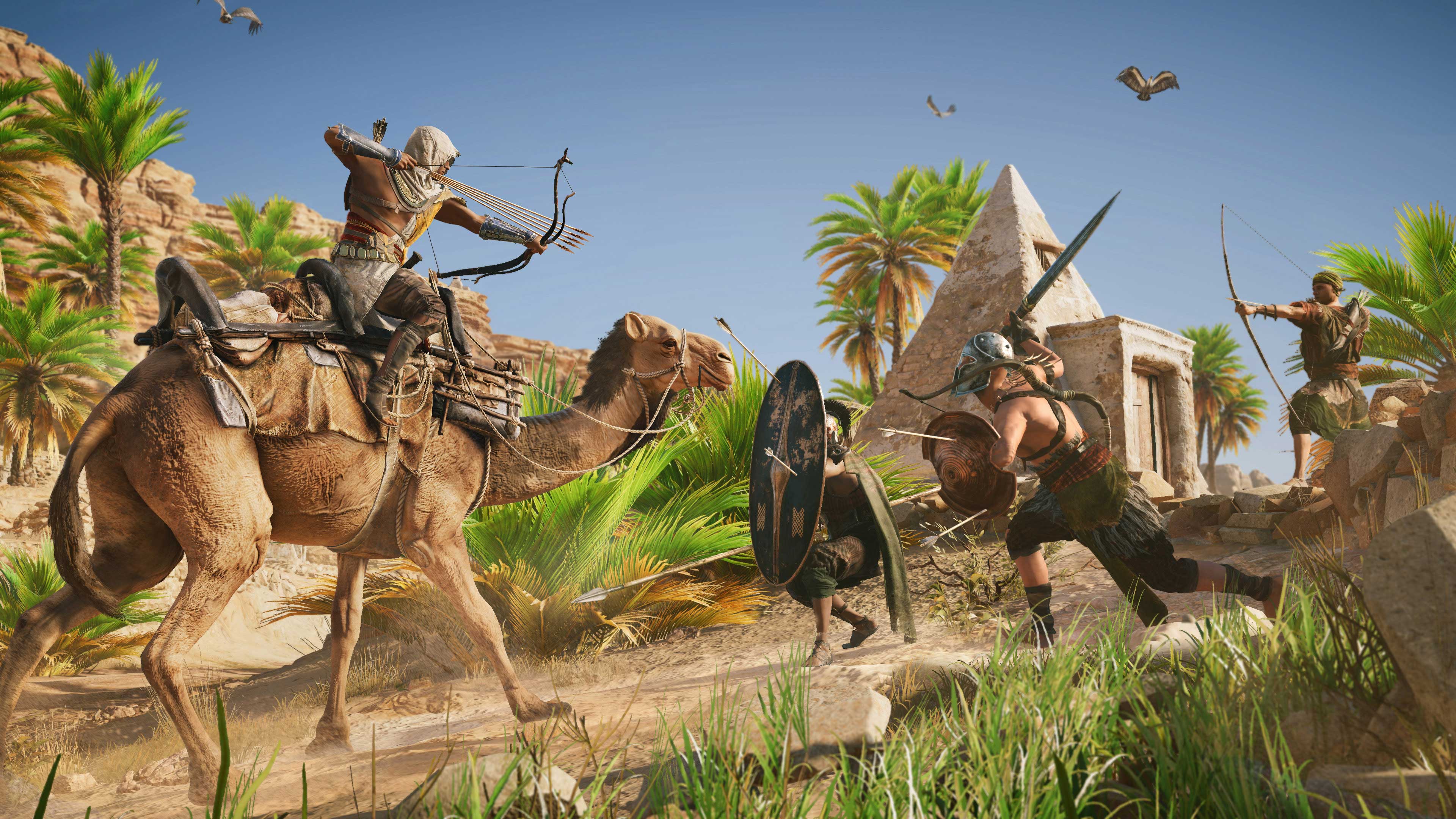Assassin's Creed Origins tough anti-piracy tech may be crippling PC performance
Curious PC framerate problems

Sign up for breaking news, reviews, opinion, top tech deals, and more.
You are now subscribed
Your newsletter sign-up was successful
The gorgeous new open-world Assassin's Creed Origins, set in a beautifully realised ancient Egypt, would be a demanding game for PC hardware to run at the best of times. But it seems that stringent anti-piracy measures may be adding an additional, substantial strain on machines.
Following reports of excessive CPU load from the new game, TorrentFreak spoke with game cracker (read: piracy enabler) Voksi, who found some interesting implementation of anti-piracy DRM (digital rights management) tools in Origins.
It appears that Origins is employing not one, but two DRM tools. The first is the often used Denuvo, which has been reasonably easy to crack for pirates in the past. As an added defensive measure, Voksi claims that VMProtect, another anti-piracy tool, has also been used.
It's this dual-set up that's making gamer's computers work incredibly hard when running the game. VMProtect works by running code in a virtual machine on your system, using non-standard architecture to secure the files that would make the game vulnerable to pirates.
Virtual overheads
This virtual machine appears to be resulting in even powerful processors being overloaded, with some players reporting its leading to Windows' dreaded "Blue Screen of Death" crash as their CPUs overheat just a short while into a play session. While that's at the extreme end of the scale, reports of FPS drops and stutter are being reported more widely.
As a game cracker, Voksi will have a bias against these systems, but the entire episode still acts to underline the ongoing battle between pirates and publishers and the gamers caught in the crossfire.
Without pirates, there would be no need for these DRM measures, and yet the tools being implemented act only to harm the enjoyment of those paying to play the game legitimately – you can assume pirates would eventually patch out the DRM should a crack prove successful. However, Ubisoft have a right to protect their intellectual property, and a more complex DRM system will certainly go someway towards slowing (if not stopping) piracy of the game. And yet Ubisoft have a duty to the experience of their players too.
Sign up for breaking news, reviews, opinion, top tech deals, and more.
For now, the casualty just seems to be the legal player, who is now faced with the prospect of upgrading components not for the sake of gameplay, but for anti-piracy software that they themselves should not have to deal with.
- Thinking of picking up the game? Our Assassin's Creed Origins tips and tricks guide has all the info you need to get started

Gerald is Editor-in-Chief of Shortlist.com. Previously he was the Executive Editor for TechRadar, taking care of the site's home cinema, gaming, smart home, entertainment and audio output. He loves gaming, but don't expect him to play with you unless your console is hooked up to a 4K HDR screen and a 7.1 surround system. Before TechRadar, Gerald was Editor of Gizmodo UK. He was also the EIC of iMore.com, and is the author of 'Get Technology: Upgrade Your Future', published by Aurum Press.